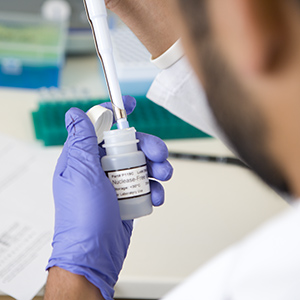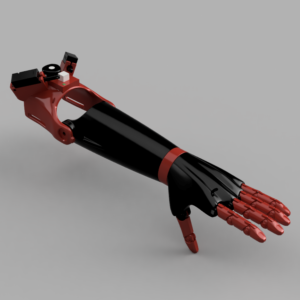
by Catherine Murari-Kanti, UNeMed | January 10, 2018
Part seven of a series
As part of UNeMed’s research commercialization activities, we routinely seek industrial partners to license University of Nebraska innovations. For this purpose, the University and industrial partners set up license agreements that describe the rights and responsibilities related to the use and exploitation of the intellectual property.
Licensing associates at UNeMed diligently market and license Nebraska’s technologies to appropriate industrial partners. Licensing significantly reduces researchers’ devotion of time and money. The licensee generally has significant financial, physical and labor resources to commercialize University intellectual property, allowing the masses to benefit from technologies developed at the University of Nebraska.
License agreements usually cover four key areas:
- They stipulate that the licensee will diligently seek to bring the University’s intellectual property into commercial use for the public good.
- Plan specified milestones that hold the industrial partner to keep up with the development and commercialization of the technology.
- Financial obligations like up-front license fees, milestones, royalties and minimum payments and maintenance fees. Agreements sometimes make licensees responsible for paying all incurred and future patent expenses.
- Provisions for a reasonable monetary return to the University.
Inventors participate in any financial returns from a license in terms of earned royalties, milestone fees and minimum royalties. In addition, inventors enjoy the satisfaction of knowing their inventions benefit the general public.
License agreements vary in length and complexity depending on a of myriad factors such as the type of licensed technology, scope of patentability, the particular industry involved and the relationship between the licensee and licensing parties.
Under certain conditions, UNeMed will license technologies and assign all its rights back to the inventor to develop the technology. This usually leads to the development of a startup.
A few factors when considering a startup company:
- Is your technology is in its nascent stages and requires additional development before a licensee can take it over?
- How much is it going to costs to develop the technology and if investors would be willing to put that money in?
- Is it possible for the inventor to develop multiple products from the same technology, maybe even target different markets – providing a larger competitive advantage?
The choice to establish a new company is a joint decision made by UNeMed and the inventor.
Of course, we do not expect you to do this alone. UNeMed will advise and provide the right coaches and resources to help set up the startup.
The primary inventor on the New Invention Notification form is typically the founder of the company. Most faculty will wear two hats–one as faculty and one as the CEO of the startup. Very rarely does a University of Nebraska faculty leave to run a startup. Faculty involvement of any kind in a startup is reviewed for conflict of interest.
It is important to remember that a startup is like a baby. Startups require a considerable amount of tender, loving care to grow and develop. The primary inventor will need to champion the effort in setting up a management team and recruiting other members required for the company to survive and eventually thrive.
UNeMed has a list of successful startups and is consistently playing an active role in educating, advocating and mentoring new entrepreneurs.
This was the final installment in a series of blog posts covering the many services UNeMed provides for faculty, students and staff at UNMC and UNO. Here’s the full list of topics:
- Patent Searches
- Inventions
- Our Process
- Agreements
- Intellectual Property
- Patents
- Startups & Licensing










